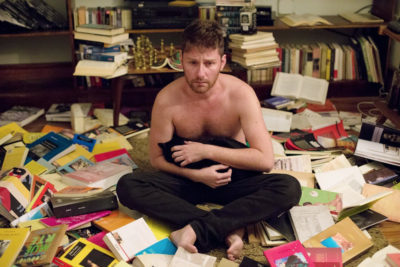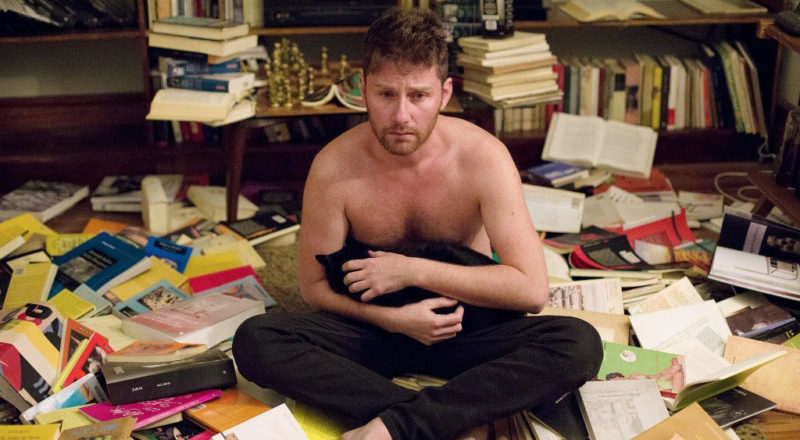INTERVIEW: Cristián Jiménez deconstructs the power of fantasy in ‘Family Life’

The new Chilean film Family Life finds the main character, Martín (Jorge Becker), house-sitting for his cousins and deciding to adopt their identity. He takes over the home as if it were his, and when he meets Paz (Gabriela Arancibia), he decides to make up an entire backstory about who he is and how he came to live at the house.
The new movie comes from co-directors Cristián Jiménez and Alicia Scherson, who also wrote the screenplay with Alejandro Zambra. The romantic drama is based on Zambra’s short story and deals with issues of identity, the generation gap and the power of fantasy.
“It was pretty spontaneous,” Jiménez said of the project’s origins. “Alicia and I had both finished projects that we had done independently, and at some point, I visited her new home. We were just making a tour of the house and thinking, oh, this house is amazing. It would be really great to shoot something here, and we came out of that meeting thinking of shooting something together.”
Their mutual friend, Zambra, said he had a perfect story for the house. He actually proposed the story to the co-directors previously, but that pitch came during a party they were all attending. And truth be told, Jiménez and Scherson forgot the specific details. But now, with the house ready to go, they revisited the idea and got to work.
“Alejandro said that he wanted to write the script,” Jiménez said. “We said, ‘OK, go ahead. You write the script. We’re going to help you out to make sure it works.’ So it was really something that started just like that in a very spontaneous way and that we decided to make as friends in a collaborative fashion. That was pretty much the spirit all the way through.”
Jiménez, whose other films include Bonsái and La Voz en Off, sees the main character as a man who clearly has a hard time finding out what he wants to do in life. He doesn’t know who he is, and that makes him susceptible to adopting the characteristics of those around him. When his cousins ask him to house-sit, it seems like the perfect opportunity to start anew.
“He feels more comfortable when he’s hiding behind someone else’s identity,” Jiménez said. “At the same time, he’s someone who really is not taking any responsibility in his life, which is something that maybe the rest of us at some point has fantasized about, and I think that’s something that is important in the relationship between the different characters in the film. He’s in one extreme maybe, and even though he’s taking this path of having no relationship, no family, no kids, no job, no home, at some point he starts fantasizing about acting like his cousin. And maybe every character in the film has a fantasy that they try to maybe act out.”
Becker, the main actor, was actually involved in the casting process to find the right actress for the pivotal role of Paz. The two needed to be compatible and have chemistry on screen because once Martín lies to her about his background, they become enamored with each other and enter into an intense and intimate relationship. It required the right actors to make the fling believable.
“We were going to decide about the cast together, and we started with Jorge,” Jiménez said. “We really wanted to work with him. … He’s a great, great actor. He has an enormous theater background. He had done a few things in film, not many things before this one, and we just organized auditions to cast Paz, who ended up being Gabriela. … Both of them had not just the qualities, but also they had the chemistry. And they really worked as a couple in the way we wanted to. It was just a big pleasure work with them.”
Jiménez believes the audience will pick up on the many themes in the drama, including the desire to be free and the competing fantasies to have kids or not to have kids. It would seem that everyone in the film considers a life other than their own.
“Even the cat maybe having a fantasy of living as a street cat for a little while,” the filmmaker said. “But at the same time, especially in the relationship between Martín and Paz, she’s younger, so we know she’s really someone that belongs to a different generation. And in our country, because of what happened politically, the generation gap is very deep. … She’s way more free. She’s really more open. She’s not shy.”
He added: “At the same time, it’s not directly treated in the film as an issue, but it’s something that is in the background: This is a neighborhood that is going through gentrification. … So in a way, this background of change, social change happening in the background of this story, that has to do with the problems that these characters are facing. I think we’re probably the first generation in Chile that really made choices about family life. … [My parents] built a life in a very traditional fashion, and even when people got divorced in their generation, very quickly they remarried again. They repeated the same pattern again. Our generation is the first one that in a way is confronted with questions about what do you want to do, who you want to be.”
By John Soltes / Publisher / John@HollywoodSoapbox.com
Family Life is currently playing in movie theaters and available on VOD. Click here for more information.

